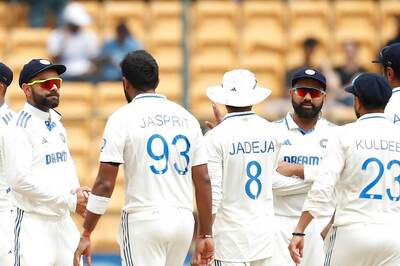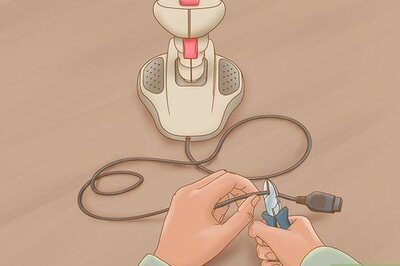
views
New Delhi: When Prime Minister Narendra Modi tweeted his personal thanks to Delhi for putting the Bharatiya Janata Party back in power in the Municipal Corporation of Delhi polls, it cemented how these civic elections were not about local issues. The BJP, incumbent for ten years in the MCD, left the Aam Aadmi Party eating dust as, by early evening, it snatched 184 out of the total 272 wards, upping its strength from previously held 138.
AAP, meanwhile, won 46 wards and the Congress 30. According to political observers, these elections were never about work done in the city by either the MCD or the AAP-led Delhi government, but the larger political hype sweeping the country, where the AAP had been branded the loser.
Why else, said veteran journalist Ajoy Bose to News18, would the BJP, which ran one of the worst municipal corporations, be handed back power. The Aam Aadmi Party has found itself in a peculiar position of anti-incumbency instead of the BJP, which ran the MCD for ten years, and, as the corporation’s officials previously told News18, didn’t really run things smoothly.
Both Bose and analyst and commentator Ashok Malik agreed that the AAP-led Delhi government has done reasonably good work in the city. However, Malik added, Delhi, with only 10% poverty, can get away with not caring too much or voting on the basis of civic issues. “This ended up as a referendum on Arvind Kejriwal’s image,” said Malik. The elections, he said, saw two types of anti-incumbency — the BJP in the MCD, and AAP as governing the city — and both cancelled each other out. The MCD, riddled with so many scams that the BJP refused to field any of the sitting councillors again, was unpopular but so were some of the state government’s more gimmicky measures such as odd-even, said Malik.
“There is hype across the country and AAP’s performance fell by the wayside,” said Bose. “It’s being seen as a party that took on the central government and lost, its gamble in Punjab didn’t pay off, its leaders might be arrested soon. This overwhelmed what should have been local elections.”
The MCD going to polls on the heels of the multiple assembly elections, especially in Uttar Pradesh, meant that BJP caught the “tailwind”, according to Bose, despite what was seen as a weak and recycled manifesto, unfulfilled promises of door-to-door waste collection and segregation, clean and abundant public toilets, sanitation of the city, which resulted in the outbreak of chikungunya last year, and the dire state of education in MCD-run schools. A survey by the Delhi government last year found that almost half of the students leaving MCD schools in class 5 to enter Delhi government schools couldn’t read, at all.
What’s peculiar, found researcher Eesha Kunduri, of the Centre for Policy Research, is that people are well aware of the work each authority has done and is responsible for in the city. “People were appreciative of AAP’s working in making electricity and water affordable and accessible,” she said. “They also know about local tussles between, say, an MLA and a ward councillor, who is at fault for undone work. But this didn’t translate into votes.” She pointed out that the East Corporation, which saw repeated strikes by the MCD’s safai karamcharis leading to piles of garbage flooding the streets, went strongly to the BJP. These, Malik explained, were people from eastern UP and Bihar, the poorvanchali voters, who have left AAP for BJP.
“I expected sanitation and waste to be a big election issue, but I didn’t find that on ground,” she added. “The question is what are people’s expectations and aspirations.”
Sanjay Kumar, director, Centre for Study of Developing Societies said, “It’s how people across the country are voting. Whether or not those hopes will be fulfilled, they have mobilised people enough to vote for this man.”
“People tend to go with the winner,” said Bose, “and that’s especially important for the poor who turned out to vote. They ask if this party and Kejriwal will work anymore. The AAP government has been crippled in Delhi, by the Lieutenant Governor and the courts. It looks vulnerable.”
And it’s not just the poor who vote in cities, Kumar punctured a popular perception. His research, in Delhi and other cities showed that the percentage of urban middle class voters is often higher than the percentage of urban poor, often because the latter cannot take a working day off to vote. “For example, he explained, “If a city sees 60% voter turnout then 60% of urban middle class voted. But the urban poor voters will be about 18-20% less than the middle class percentage.”
Malik, too, said that 54% voter turnout meant a reasonable number of people from all sections of Delhi voted.
The twofold misfortune of AAP seems to be that urban middle class turned away as it saw the government’s work targeted only for the poor. Sections of the poor drifted to the BJP and to the Congress, whose collapse in 2015 contributed to AAP’s victory, as it could no longer buy the idea of the government as a constant victim, hampered in its work by the Centre.




















Comments
0 comment